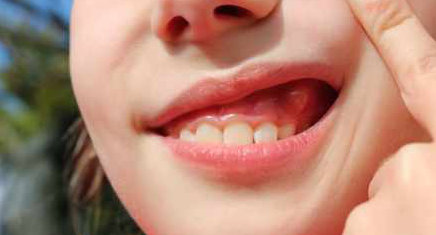Gum Care: First Step To Good Oral Health
December 09 2019 by Mills Haven Dental

The Importance of Gum & Oral Health Care
Taking care of your gums is the first step to good oral hygiene. If plaque builds up or along your gum line, you may start experiencing early signs of gingivitis, which could lead to more advanced stages of gum disease requiring serious treatment.
In order to help you avoid gum disease, Mills Haven Dental highlights everything you need to know about gum care in the article below.
Signs & Symptoms of Gum Disease
To begin, what are some potential indicators of gum disease?
Visible or sensational symptoms may include:
- Bad breath that won't go away
- Inflamed (red, swollen, or tender) gums
- Gums that pull away from the teeth (receding gums)
- Pain or bleeding from the gums when chewing
- Loose or sensitive teeth
Generally speaking, the more symptoms you experience, the more severe the case may be. If you are experiencing any of the above symptoms, you may wish to speak with your dentist.
Gum Disease: Causes & Consequences
The following factors are causes which can place a person at higher risk for developing gum disease:
- Smoking or using chewing tobacco
- Hormonal changes in girls and women
- Diabetes
- Certain medicines
- Heredity
3 Stages of Gum Disease
- Gingivitis. The first stage of gum disease results in red, swollen, and tender gums which bleed easily. Thankfully, this condition is generally reversible on its own, as the bone and tissue structuring the teeth aren't necessarily impacted. Improvements made to brushing and flossing can help treat gingivitis.
- Mild to moderate periodontitis. This stage involves more severe inflammation or more frequent bleeding around the tooth. Periodontitis usually occurs when your gums are exposed to poisonous bacteria from plaque for long periods of time. As a result, your gums start receding from the tooth or bone surrounding the impacted area.
Pockets filled with infected bacteria begin to grow. Teeth may begin to feel loose and unstable, due to the bacteria destroying the gum conditions in the impacted area. The inflammation and infection on-site must be treated to prevent further damage to your other teeth and overall oral health. - Advanced periodontitis. This stage involves heavy deterioration of the gums or bone conditions in the infected area. It isn't uncommon for teeth to get extracted at this point, if all other attempts of improving bone support and/or other dental restorative methods prove to be unsuccessful.
Tips to Keep Your Gums Clean and Healthy
- Be sure to brush your teeth thoroughly, and lightly brush over your gum lines routinely.
- Consume fibrous and calcium-rich foods, such as fruits, vegetables, milk, yogurt, and cheese. Speak to your dentist about the best foods to eat for healthy gums.
- Avoid sticky sweets and starchy foods, such as candy, chocolates, toffees, taffies, and pastries.
- Avoid carbonated drinks containing phosphoric and citric acids as they can damage your tooth enamel over time, affecting your oral health
- If you do eat or drink something sweet, be sure to brush, rinse, floss and use mouthwash as soon as possible. If you enjoy chewing gum, we recommend going for sugar-free brands.
If you still have questions about Gum Care, Mills Haven Dental is always happy to answer your questions. Contact us today to book an appointment!